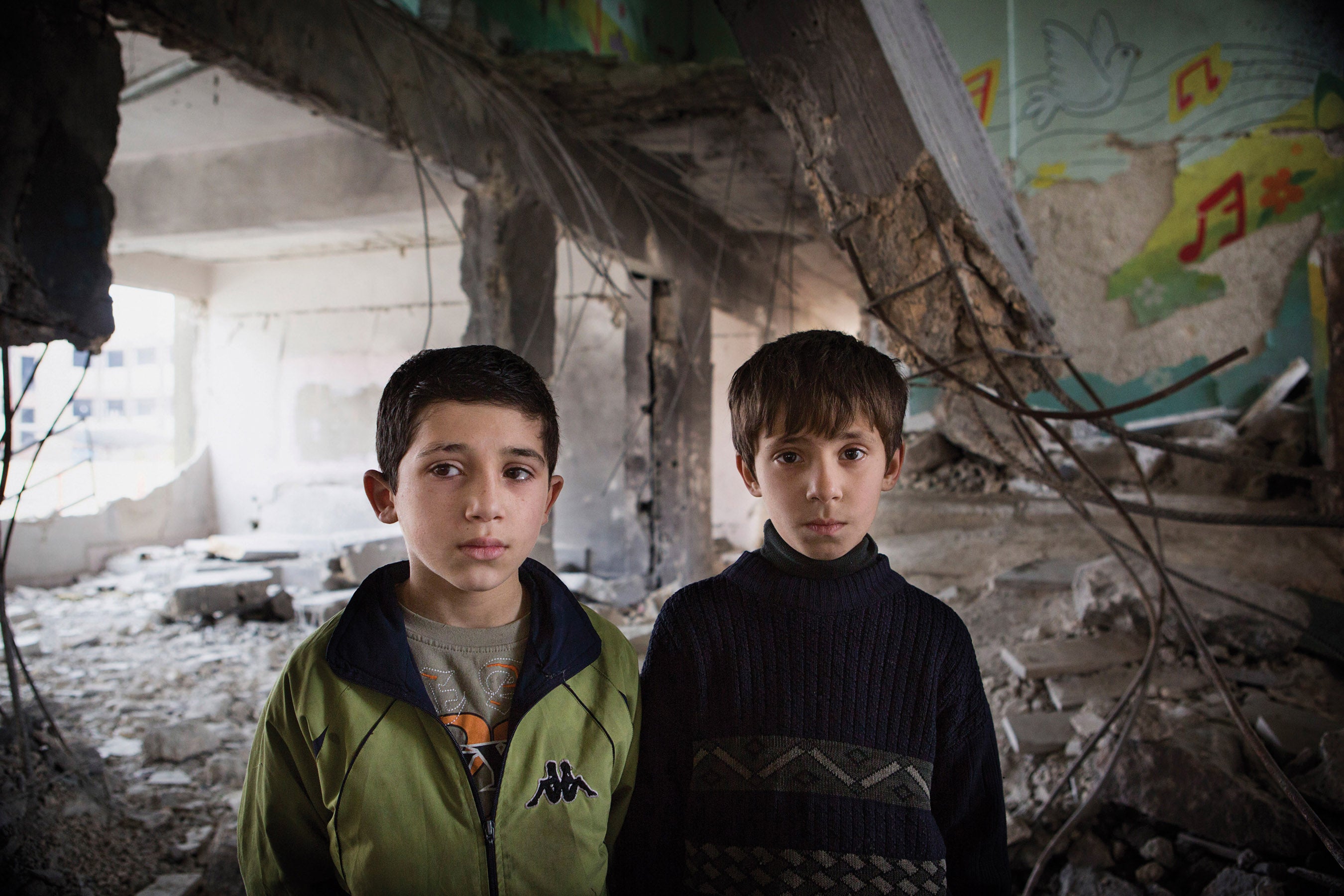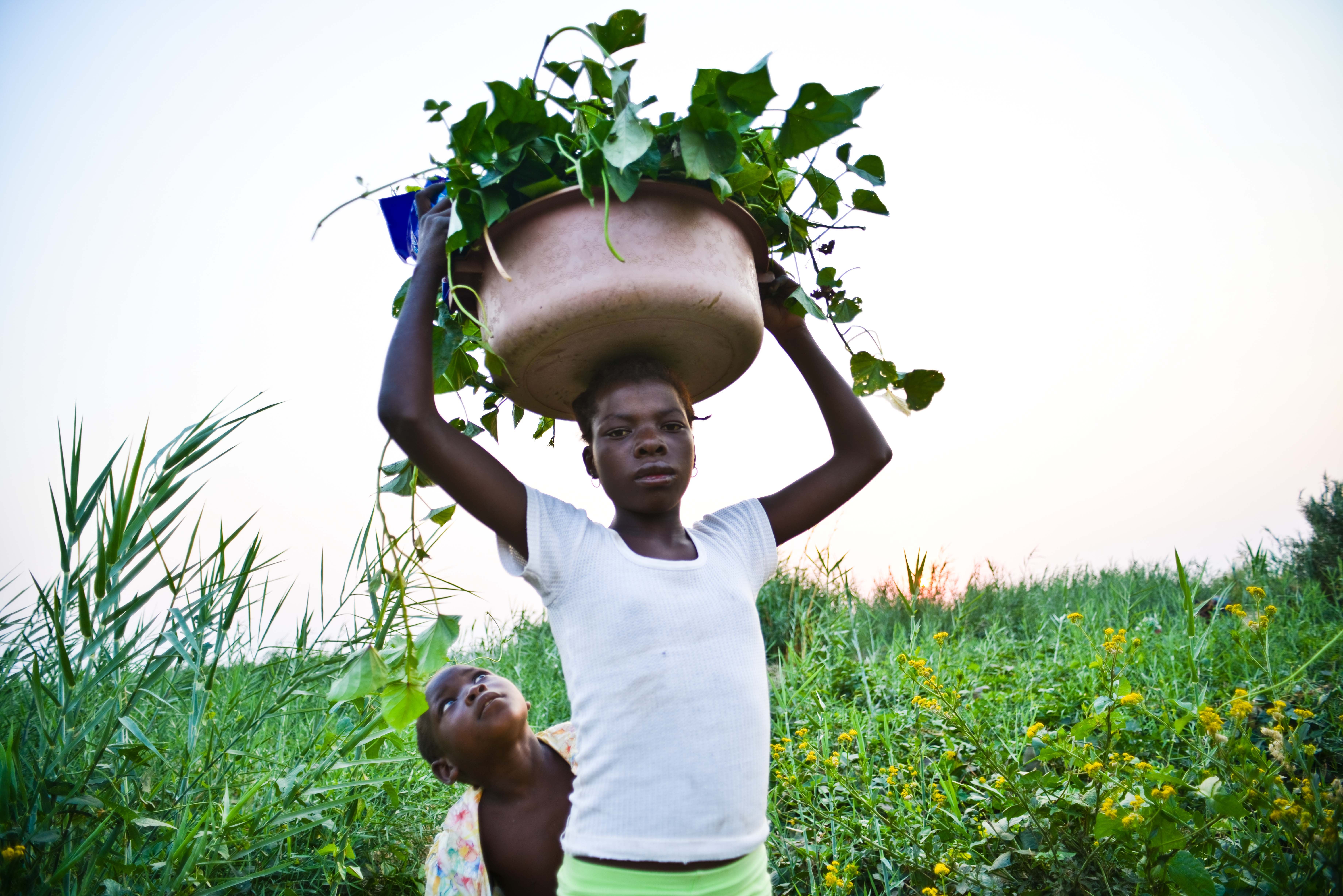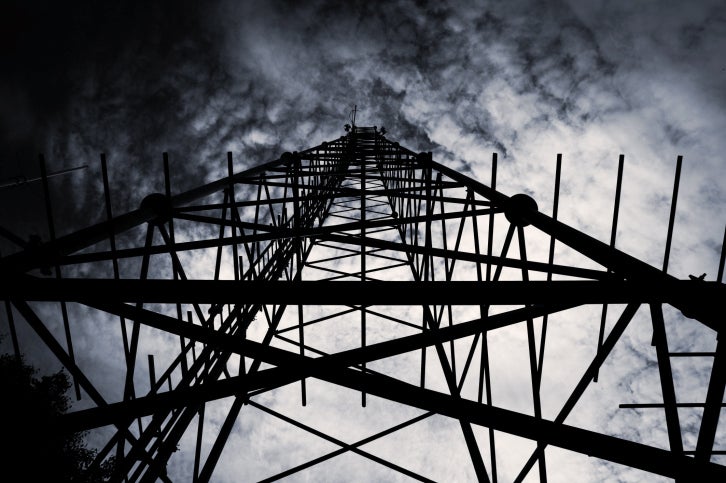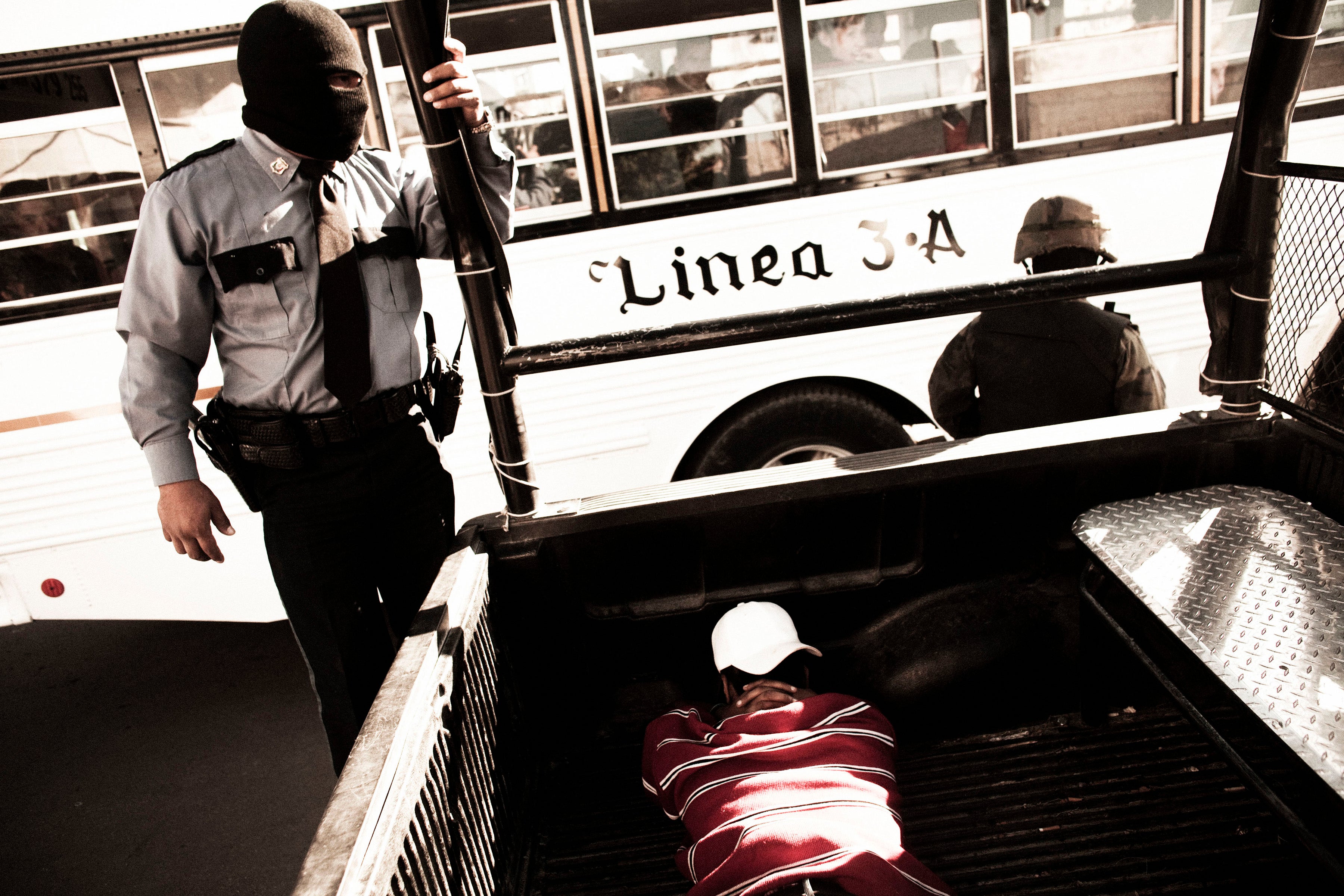Long-standing problems in Bolivia’s criminal justice system, such as extensive and arbitrary use of pre-trial detention and long delays in trials, undermine defendant’s rights and contribute to serious overcrowding in prisons. Impunity persists for serious human rights abuses committed during the country’s authoritarian rule from 1964 to 1982.
The administration of President Evo Morales continued to launch verbal attacks on the press, accusing critical journalists of politically motivated lies.
After several high-profile killings of women sparked public protests, the government passed a comprehensive law in March 2013 to combat gender-based violence.
Accountability for Past Abuses
Bolivia has made little progress investigating and prosecuting human rights violations committed under authoritarian governments between 1964 and 1982. A contributing factor has been the unwillingness of the armed forces to provide information that might clarify the fate or whereabouts of people killed or disappeared during this period.
Plans to create a truth commission announced by the Morales administration in 2008 have not materialized. Bolivia has failed to fulfill commitments to compensate victims of political violence during that period. A 2004 law budgeted US$3.6 million in government funds for this purpose, which would only cover about 20 percent of the proposed costs. The remaining funds were to be obtained from private donors, but were never raised.
In April 2012, Congress passed a law announcing one-off payments equivalent to roughly 20 percent of the compensation amounts approved in 2004. As of December 2012, 1,418 of the 1,714 approved beneficiaries had received one of these reduced payments, according to the government. Many additional potential beneficiaries said they were rejected due to overly stringent documentary evidence required by the government commission appointed to review claims.
Long delays in the trials of opposition leaders and government officials have obstructed justice for victims of violent clashes in 2008 between supporters and opponents of President Morales. Repeated changes of jurisdiction and prosecutorial inefficiency have also undermined the right of the accused to due process and a prompt trial. As of August 2013, a La Paz court was still hearing evidence in a case involving Leopoldo Fernández, former prefect of Pando department, and five local officials, charged in 2008 for their roles in a September 2008 massacre in which 13 people were killed. The judge repeatedly suspended proceedings when defendants failed to appear.
Despite international concern, the government has not reopened an investigation into the April 2009 killing of two Hungarians (one of Bolivian birth) and an Irishman, whom the government alleged were mercenaries involved in a separatist plot. Police shot them dead after storming their hotel rooms in Santa Cruz. Reports by an Irish government pathologist and an independent forensic consultant suggested that at least two of the victims may have been extrajudicially executed.
Military Jurisdiction
In a landmark December 2012 decision, the Constitutional Court ruled that a civilian court should have jurisdiction in the case of a conscript who died in 2011 following a combat training exercise—allegedly after instructors beat him on the head and chest. The court urged lawmakers to reform Bolivia’s military justice code to bring it in line with international human rights standards, which affirm that all human rights violations should be handled in civilian jurisdiction.
Due Process Violations
The broad discretion that judges enjoy in ordering pretrial detention and lack of access to public defenders have greatly undermined due process rights for those accused of a crime, particularly among Bolivia’s poor. According to a report published by the United Nations High Commissioner for Human Rights (UNHCR),as of September 2012, 84 percent of prisoners in Bolivia were awaiting trial. Bolivian law allows up to three years in pretrial detention, a limit often contravened in practice.
High-profile defendants have also suffered due process violations and judicial harassment. In October 2013, José María Bakovic, a 74-year-old former director of the National Road Service (SNC), died from a heart attack after prosecutors—ignoring warnings from doctors that a journey to the high altitudes of La Paz could endanger his life—ordered him to attend a hearing there. Bakovic, who worked aggressively to eradicate corruption within the SNC while he was its director, himself became the target of a corruption investigation after President Morales took office in 2006. Before his death, he said that he had defended himself in 72 cases filed in different parts of Bolivia, and was eventually sentenced in August 2013 to three years in prison for economic damage to the state.
Prison Conditions
Extended pretrial detention and trial delays have led to increased overcrowding in Bolivia’s prisons. As of September 2013, the government reported there were 14,770 inmates in prisons with a capacity of under 5,000. Eighty percent of those prisoners, President Morales said at the time, were being held due to “delays of the justice system.”
Prison conditions are poor: most are dilapidated; food and medical attention are inadequate; and internal control is often left to prisoners. At least 35 inmates were killed and more than 50 injured in a fire resulting from a clash in August 2013 between rival gangs in Palmasola prison. The dead included an 18-month-old who was spending the night in the prison with his father, who reportedly died while trying to shield him from the flames.
In September, President Morales signed a decree that allowed the pardoning of prisoners serving sentences of up to eight years for lesser sentences, while those in pretrial detention for crimes with penalties of four years or less could be released and have their charges dropped under a government amnesty. While the government estimated this would affect roughly 2,000 prisoners, the Bolivian Catholic Church estimated that only approximately 600 prisoners in pretrial detention would be eligible for release, due to stringent eligibility requirements.
Gender-Based Violence and Reproductive Rights
Women and girls in Bolivia are at high risk for gender-based violence. According to police statistics reported in the press, in 2012 there were over 140 gender-based killings of women, and thousands of complaints filed for acts of gender-based violence. Public protests following several high-profile murders of women in early 2013, including the fatal stabbing in February of journalist Hanalí Huaycho by her husband—a former police officer—led the government to pass a comprehensive law in March to combat gender-based violence. Prior to her killing, Huaycho had repeatedly reported abuses by her ex-husband to authorities.
The new law adds “femicide” to the criminal code (with a mandatory 30-year sentence), establishes a task force to combat domestic violence, and mandates the construction of women’s shelters, among other reforms.
In Bolivia, victims of sexual violence must receive judicial authorization before they may access legal abortion services. Failure to do so may result in prosecution: an indigenous woman served eight months in prison in 2012 after being convicted for obtaining an abortion without judicial authorization after she became pregnant from rape.
Freedom of Expression
While public debate is robust, on occasions President Morales or his ministers have aggressively criticized the press, accusing journalists of lies and politically motivated distortions. In August 2013, the minister of the presidency accused the La Paz newspaper, Página Siete, of being “indecorous, malicious, deceitful and mendacious,” and of having links with Chilean right-wing politicians. The minister’s comments followed an Independence Day speech the same month in which President Morales accused unnamed newspapers and television outlets of having a pro-Chilean stance (Bolivia has a long-standing maritime dispute with Chile). In August 2012, the government filed a criminal lawsuit against Página Siete and two other outlets for “inciting racism,” by publishing a headline it alleged distorted a presidential speech about food shortages. As of September 2013, the case remained open.
As of October 2013, the National Assembly was debating a bill presented by the government on transparency and access to public information. The National Press Association criticized several of the grounds for confidentiality envisaged in the bill, which grants a wide range of government authorities broad powers determine exceptions to access.
Key International Actors
Bolivia supported a campaign by Ecuador to undermine the independence of the Inter-American Commission on Human Rights and limit the funding and effectiveness of its special rapporteurship on freedom of expression. While they were unable to win support for this effort at the March 2013 meeting of the Organization of American States General Assembly, both governments, as well as other members of the Bolivarian Alliance for the Americas (ALBA), made clear their intent to press for these changes in the future.
In June 2013, the Committee against Torture (CAT) urged Bolivia to adopt legislation establishing torture as a crime in its own right as defined in the Convention Against Torture and expressed concern at delays in investigations into allegations of torture.
In October 2013, in a draft version of its concluding observations on Bolivia’s third periodic report, the UN Human Rights Committee urged Bolivia to implement alternatives to preventive detention and to strictly limit its duration, and to eliminate the requirement of prior judicial authorization for therapeutic abortion and abortion in cases of rape and incest, among other recommendations.
In April 2013, the UN Committee on Migrant Workers expressed concern at persistent discrimination against migrant workers and refugees in Bolivia and the absence of any record of compensation paid to migrant workers whose rights had been violated.
Also in April, Bolivia became the second International Labour Organization member state in Latin America to ratify the Domestic Workers Convention, which provides critical protections for millions of domestic workers—mostly women and girls—who perform essential household work in other persons’ homes.




